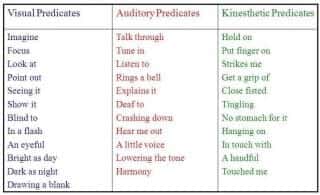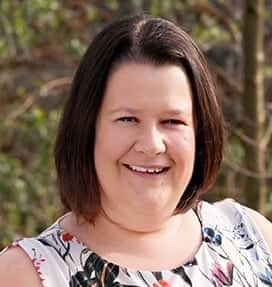If you talk to a man in a language he understands, that goes to his head. If you talk to him in his language, that goes to his heart – Nelson Mandela
The essence of communication is the meaning that you get. There are 4 main preferences that influence the type of language that a person will use. It therefore stands to reason that if you want to be an influential communicator, you need to be able to adapt your language.
Why is influential Communication so useful?
This information is useful at work and in business, both for interacting with individuals and groups:
- Improving communication, for example when presenting, managing, selling an idea, negotiation, mean you will be able to communicate in the way other people think and what to receive information – this reduces the risk of misunderstanding – you know the times maybe in the past when you said the same thing to several different people and got different responses?
- Improve your skills as a coach or someone who helps others to learn – improving your listening skills as well as your speaking skills by being more flexible
- Rapport – if you’ve read some of my other blogs, you’ll know that Rapport is the basis of all communication (people like people, who are like them) – so being flexible in the way you communicate can help build rapport
In a previous blog I’ve covered the NLP communication model (how people gather and process information that comes in via their 5 senses – visual, auditory, kinaesthetic (feelings, touch), olfactory and gustatory). In addition to the 5 senses, we use our internal dialogue – which in NLP we know as Auditory Digital (or AD). If we take an example of a shoe shop – you might go into the shoe shop and see (visual) a lovely pair of shoes, and then might think to yourself ‘that’s a lovely pair of shoes’ (AD). We can use all of these, but we tends to favour one or two …
Your Communication Preference …
We all have preferences – our default settings, where we spend most time. In the western world you are likely to have a preference for Visual, Auditory, Kinaesthetic or Auditory Digital. We refer to our main preference as our ‘primary representation system’. In the field of NLP there are various views on the percentage of people that have a preference for Visual, Auditory, Kinaesthetic or AD – generally there is a view that there are quite an high percentage of visual people, but it really does depend – for example if you were presenting to a group of Nurses, I’d guess they’ll be quite a few people with a preference for Kinaesthetic. What happens is that associated to each preference is a cluster of words that are commonly used – see the attached picture for some ideas of these – you might recognise yourself in some of these! (these clusters of  words are called Predicates). On our NLP Practitioner course we share with delegates a quick Representational System Preference Questionnaire that helps people understand their preference.
words are called Predicates). On our NLP Practitioner course we share with delegates a quick Representational System Preference Questionnaire that helps people understand their preference.
Flexibility in your Language in order to Influence …
If you are communicating with someone or a group of people with the same preference as you – bingo! it works really well if you use your preference. If however their preferences are different to yours – that’s when the challenges start to arise. Emails are a great way to start to spot the tip-offs in the language other’s use – take a look at an email you’ve had today, read it and see if you can spot a bias for one of the Primary Representation Systems. When you reply to the email, try putting in some language that reflects the other person’s preference and see how you communication is more easily understood. If you’re wanting to build more rapport with someone, it’s a great start to start using some of the language that they’d use in order to help you influence and get your message across in a way that the other person can easily process – it’s a great start to reduce one of the common barriers to communication.
If you’d like to enhance your communication skills, booking onto one of our courses could be a key to helping you become a much more influential communicator!
____________________________________________________________________
Laura is passionate about helping people realise their potential, and achieve the results they deserve. She believes, if you change your thinking, you can change your results. If you’d like to find out more about Unleash Your Potential, you can check out our NLP courses and coaching options, and link up with us via our Facebook page, follow us on Twitter or link up with Laura via LinkedIn. You can of course also email us at: [email protected]


